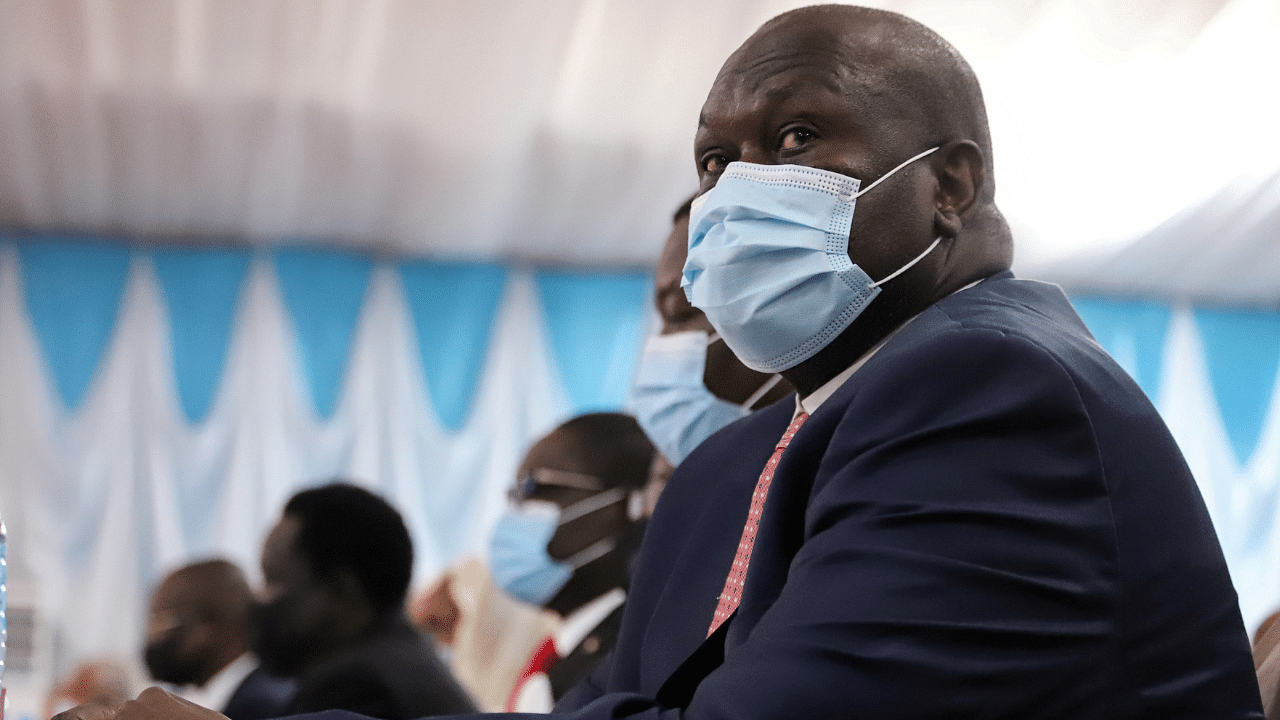
Sudan's government and rebel leaders gathered Saturday to drumming, singing and dancing as they prepared to sign a landmark peace deal aimed at ending decades of war in which hundreds of thousands died.
Leaders from neighbouring countries as well as Egypt, Qatar and Saudi Arabia are expected to attend the ceremony in Juba, the capital of South Sudan.
The accord will be inked by the transitional government and the Sudan Revolutionary Front (SRF), a coalition of rebel groups from the war-ravaged western Darfur region, as well as the southern states of Blue Nile and South Kordofan.
However, two other well-established rebel groups will not sign, reflecting the challenges still facing the peace process.
"This signing means we left the war now behind us. This agreement means democracy, justice, it means freedom in Sudan so we are very happy. This is the end of the war... by this peace agreement the economy in Sudan will boom again," Ismail Jalab, a senior member of the SRF told AFP.
Entertainers from South Sudan and Sudan performed as thousands of guests waited for proceedings to begin.
"This is a very historical day to us Sudanese because this peace is going to end the protracted conflict in Darfur, Blue Nile, and South Kordofan... it is well known since the independence of Sudan there is no stability, there is no social-economic development because of marginalisation," said 32-year-old Abdal Aziz who fled Darfur six years ago and has been living as a refugee in South Sudan.
Ending Sudan's internal conflicts has been a top priority of the transitional government, in power since last year's ouster of longtime dictator Omar al-Bashir in a popular pro-democracy uprising.
The peace talks were mediated by South Sudan whose leaders themselves battled Khartoum as rebels for decades before achieving independence in 2011.
Sudan's leaders, including Prime Minister Abdalla Hamdok, head of the transitional sovereign council General Abdel Fattah al-Burhan and General Hamdan Dagalo, deputy chief of Sudan's joint military-civilian sovereign council, will attend the ceremony.
In a statement on his arrival, Hamdok said that "peace will open broad horizons for development, progress and prosperity.
"The peace building process faces various challenges and pitfalls that we can overcome through concerted efforts and joint action," he said.
Mini Arko Minawi, leader of the Sudan Liberation Movement which is a member of the SRF, said Sudan's troubled economy and "fragile political situation" were challenges facing the agreement.
The economy has suffered from the country's inclusion on Washington's terror blacklist, decades-long US sanctions, and the 2011 secession of the country's oil-rich south which deprived the north of three-quarters of its oil reserves.
Economic hardship triggered the anti-Bashir protests and remains a pressing challenge -- food prices have tripled in the past year and the Sudanese pound has depreciated dramatically.
Sudan has been torn by multiple conflicts between the Arab-dominated government that was led by Bashir for three decades and rebels drawn from non-Arab ethnic groups in its far-flung regions.
In Sudan's vast rural areas, settled ethnic minority farmers have frequently competed for scarce resources with Arab herders, who have often been backed by Khartoum.
Multiple civil wars have raged since independence in 1956, including the 1983-2005 war that led to the secession of the south.
The devastating war in Darfur from 2003 left at least 300,000 people dead and 2.5 million displaced in its early years, according to the UN.
The peace agreement covers a number of tricky issues, from land ownership, reparations, and compensation to wealth and power-sharing and the return of refugees and internally displaced people.
Under the deal, SRF fighters are to be slowly incorporated into joint units with government security forces.
One of the holdout groups, the Darfur-based Sudan Liberation Movement (SLM) faction led by Abdelwahid Nour, launched an attack on Monday, the army said.
Another, the South Kordofan-based wing of the Sudan People's Liberation Movement-North (SPLM-N) led by Abdelaziz al-Hilu, has signed a separate ceasefire.
It allows rebels to keep their guns for "self-protection" until Sudan's constitution is changed to guarantee the separation of state and religion.
South Kordofan and to a lesser extent Blue Nile state have significant Christian populations who have fought for decades to end the imposition of Islamic law by Khartoum.